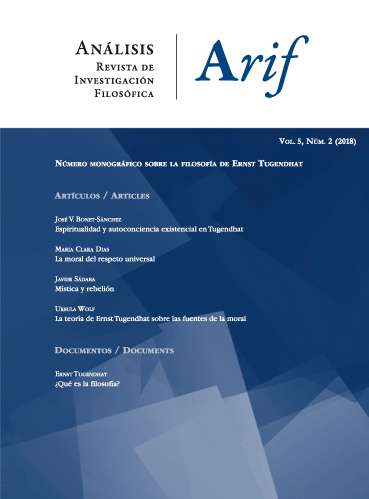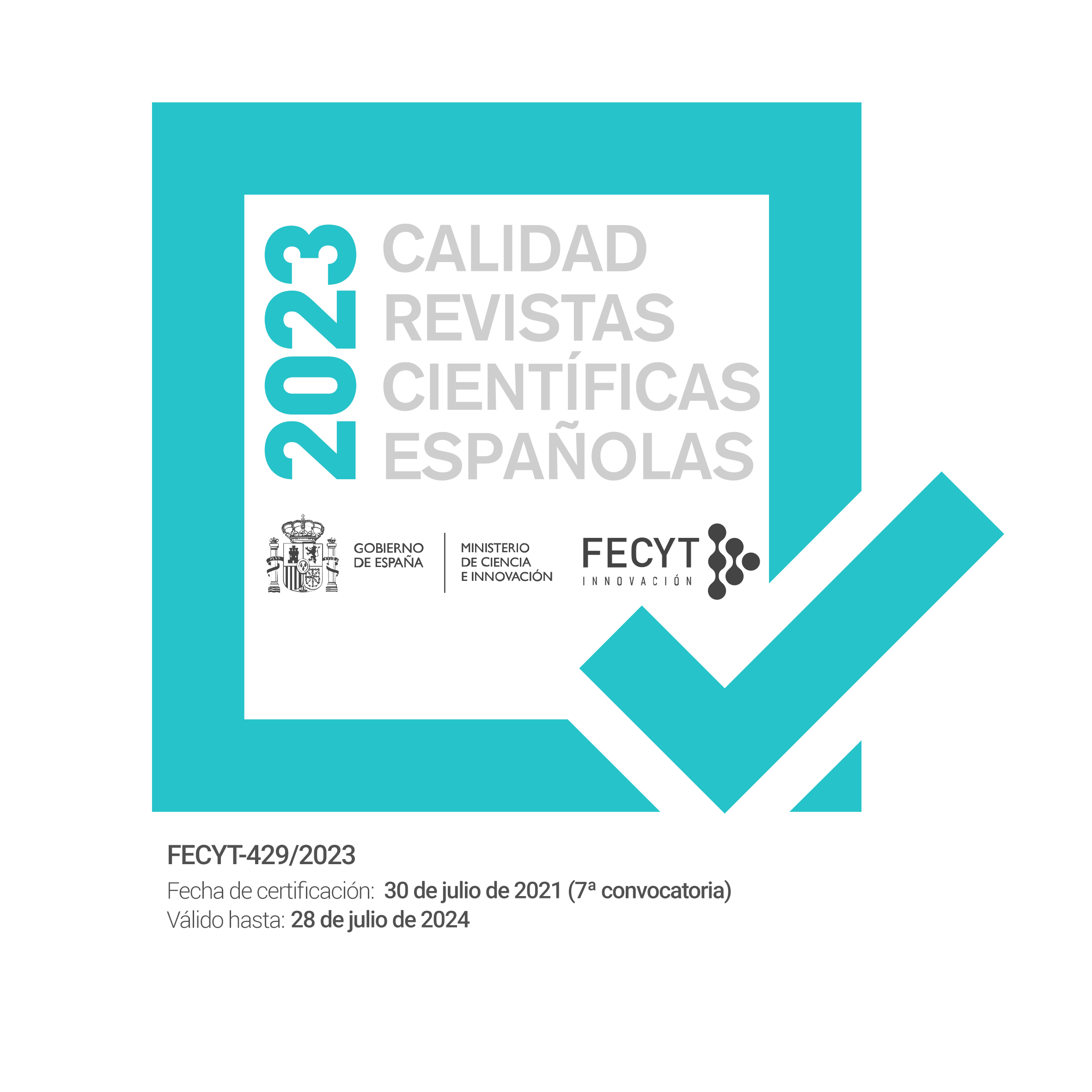Ernst Tugendhat in the Sources of Morality
DOI:
https://doi.org/10.26754/ojs_arif/a.rif.201823294Abstract
The main moral motive for Tugendhat’s contractualist approach is the desire to be recognized as a member of the contractual community. But this reason can not justify the prohibition of cruelty to animals. With regard to this problem, Tugendhat fluctuates between the adoption of a second motive, compassion, and the externalization of the attitude toward animals and nature as a whole to mysticism. This article attempts to solve this problem by explaining the human-animal relationship and its ethical implications. It is argued that morality generally refers to the consideration of the welfare of beings who are capable of suffering. Since the welfare of these individuals has different dimensions and our relationships with them also have different types, so the moral action is based on different reasons, without having to assume a tension between incompatible motives.
Downloads
Downloads
Published
How to Cite
Issue
Section
License
Los autores que publican en esta revista están de acuerdo con los siguientes términos: los autores conservan los derechos de autor y garantizan a la revista el derecho de ser la primera publicación del trabajo al igual que licenciado bajo una Creative Commons Reconocimiento-No Comercial-Sin Obra Derivada 4.0 (CC BY-NC-ND) que permite a otros compartir el trabajo con un reconocimiento de la autoría del trabajo y la publicación inicial en esta revista. Los autores pueden establecer por separado acuerdos adicionales para la distribución no exclusiva de la versión de la obra publicada en la revista (por ejemplo, situarlo en un repositorio institucional o publicarlo en un libro), con un reconocimiento de su publicación inicial en esta revista.






